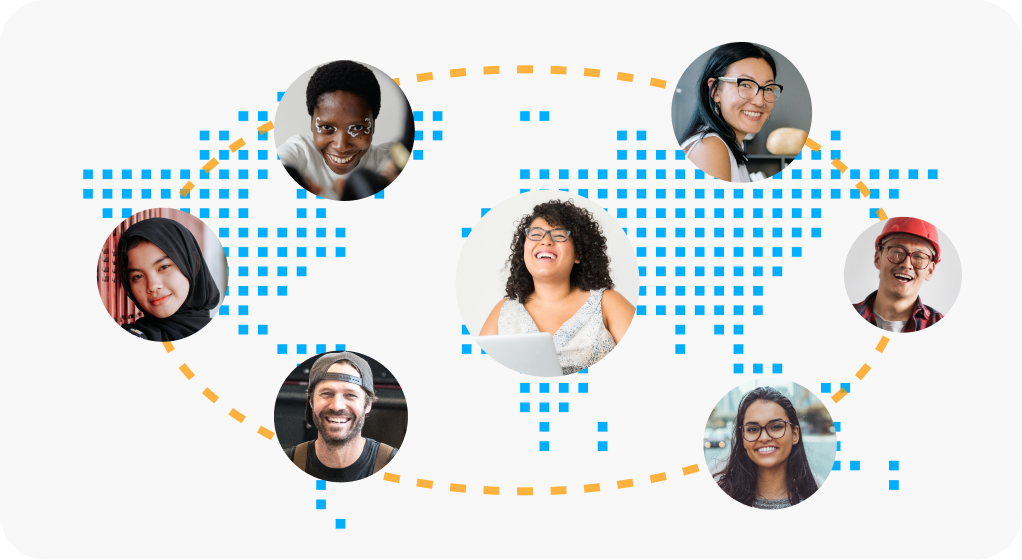I’ve frequently wondered why, as children, we’re constantly asked what we want to be when we grow up. Looking back, I see that this was just the first step of a social conditioning that many children in Western society experience; a conditioning that sees jobs as fairly static labels: “doctor”, “lawyer”, “engineer” and so on. The United Kingdom’s education system forces children to constantly narrow down our school subject choices and, at age 16, the majority of students will narrow their choices down to 3 or 4 subjects that they are told will inform their undergraduate degree choice and, ultimately, their career. Yet many young people end up in careers that are unrelated to their academic degree and sometimes lacking the transferable and soft skills that are needed in the workplace. Furthermore, this already stressful decision-making process is compounded by additional external pressures: parental expectations, economic recessions and contracting job markets, and the impending uncertainty of the “Fourth Industrial Revolution” – the digital evolution will transform the future of work with disruptive technologies.
How then to go about choosing a career? Finding myself in this position, I have often found it useful to step out of the “impending doom” echo chamber and engage in introspection. That is, identifying what my goals are, what contributions I can make, and the career decisions that will align with my values. Understanding personal goals and how career aspirations fit into this is particularly important. In my case, my long-term aims are to be stimulated and challenged by the work I do, constantly learning new things but not pushed towards burnout. I also aim to be in a stable position, where job security and income flow are not frequent worries. While this may seem broad, these are the aspects of career I find personally necessary and that will, in my view, be important foundational steps towards a healthy work-life balance. I believe that keeping my long-term career goals fairly broad at this stage makes them realistically achievable but also more malleable when faced with unexpected changes. In the short-to-medium term, I can also finetune the more immediate and specific aims I have for my career. From an industry standpoint, I prefer industries that are dynamic with potential for progress, profitability, and longevity, especially in light of ever-evolving digital transformations. At an organizational level, a job environment should be collaborative, allowing me to work constructively with my peers with opportunities for socialisation as opposed to an adversely competitive environment, or one that is frigid and isolating. Finally, on a personal level, I would like a career that incorporates my strengths, such as creativity, communication, and diversity of work. In a more practical sense, a job should also provide reasonable working hours, holiday allowance, promotion opportunities.
Having established my own goals and desires, I find it useful then to step outside myself and ask; What does this industry/organisation want from me? What contribution can I make to this organisation and wider society? I think that a necessary step in pursuing a career that adds value to the world, is to recognise certain qualities that labour markets require. The 2018 Future of Jobs report by the World Economic Forum notes that by 2022, “the skills required to perform most jobs will have shifted significantly.” Specifically, they refer to new trends in the demand for skills, requiring workers to have “futureproof” qualities including analytical thinking and innovation, active learning, and technological competency. As industry demands shift, and organizations and individuals lag in their response, the widening skills gap will hamper productivity. It is therefore pertinent for individuals to equip themselves with the capabilities that will enable them to make productive contributions to the economy. In my own career decisions, I find it beneficial to identify the skills that are in demand by society, evaluate the extent to which I possess such skills, and seek opportunities to cultivate the skills I lack.
When thinking about a career that will be “valuable” it helps to identify industries and organisations that add value as well, because my role within that structure is then a part of that contribution. The definition of value is subjective, but there are certain characteristics that I personally look out for in an organization. For example, I value a company ethos that is conducive to equal opportunities for personal and professional growth. As an ethnic minority woman, it is important to me that an organization is able to demonstrate a commitment to fair working practices. Organizations should also have the flexibility to allow employees to bring about real change either in their area of work and the organization more broadly. Casting the net even further, organisations should adopt environmentally sustainable business operations where possible as this will have long-term and wide-reaching implications for our planet. Finally, corporate social responsibility (CSR) initiatives should be present, and employees should have opportunities to engage with these.
It’s easy sometimes to think that adding value to the world requires the grandest achievements but making positive contributions within one’s own sphere of influence can be just as effective. Of course, the reach of this ability to influence differs from person to person, but also hopefully increases the further an individual advances in their career. This is another reason why opportunities for progression are important. It’s essentially the principle that “with great power, comes great responsibility” where responsibility encompasses the areas in which one has control and can affect change, be it through taking on management and mentoring roles, influencing organizational strategy, or making a difference to other stakeholders in wider society.
When you’re first starting out in your career, it’s difficult to know where to start looking, even once you’ve identified personal goals and values. Understanding the nature of work requires a lot of research, and I have found it useful to acquire information about different careers by talking to different people; including family and friends, school and university career advisors, and networking and shadowing opportunities during internships. Through these networks, I have gained greater insight into the strengths and weaknesses of different industries, including the kinds of work that I am likely to enjoy, and that will allow me to add value to the world. For me this was an important step in getting started, but the most useful teacher is personal experience. So the last step in all of this, once equipped with knowledge and a good understanding of personal goals, is to gain hands-on experience – be it internships, volunteer opportunities, temping, or permanent employment. I’m constantly learning new things about both myself and the world around me, and I’m yet to see how my career path twists and turns through complexities of life, but a confident start makes all the difference.






